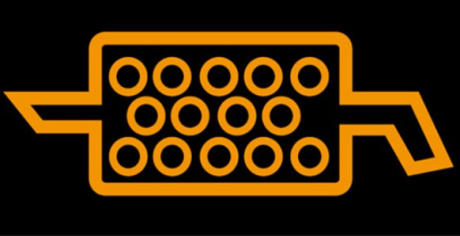
The article discusses the Diesel Particulate Filter (DPF), a key component of the exhaust system that requires expensive materials like silicon carbide and platinum for its production. Its primary function is to trap soot particles generated during engine combustion.
What to do when the DPF (Diesel Particulate Filter) warning light comes on?
When the DPF warning light turns on, it indicates an issue with the filter, usually linked to clogging. The DPF is equipped with multiple sensors, including at least two that measure differential pressure and two or more for monitoring exhaust gas temperature. High differential pressure typically signifies a clogged filter, signaled by the DPF symbol on the dashboard.
In such cases, a regeneration phase automatically initiates to clear the filter. The frequency of regeneration depends on driving habits; it may occur every few hundred kilometers (particularly with frequent city driving) or only after several thousand kilometers. Long-distance vehicles are less likely to experience clogged DPFs.
Regeneration Phase

During the regeneration phase, it's advised not to turn off the engine. Additional fuel is injected to increase exhaust temperature, and shutting off the engine at this time can lead to fuel entering the engine oil, causing gradual oil dilution and potential engine damage. Instead, driving at full throttle on the highway is recommended to speed up the combustion of soot particles.
Successful regeneration turns off the DPF warning light. However, in cases where the filter is severely clogged, the vehicle may enter a limp mode with reduced performance. Then, the only solution is a complete DPF replacement, which is quite costly, ranging from approximately $1,000 to $2,000 (prices vary by brand and model).
Same articles

Understanding Vehicle Inspection and Verification Services: Why They Matter for Every Driver
GuidesVehicle inspection and verification services are an essential but often overlooked part of keeping roads safe and cars legally compliant. Most people only think about inspections when it’s...
KLIFEX Brand Overview: High-Quality Automotive Repair Kits for Affordable Repairs
GuidesThe automotive aftermarket has long needed solutions that combine reliability, durability, and affordability. Many car enthusiasts and services are looking for a way...
Fast, Reliable Vehicle Emissions & Inspection Services Made Simple
GuidesFast, reliable emissions and inspection services are essential for keeping vehicles road-ready, compliant with environmental regulations, and safe for daily driving. If you’re looking for quick...

